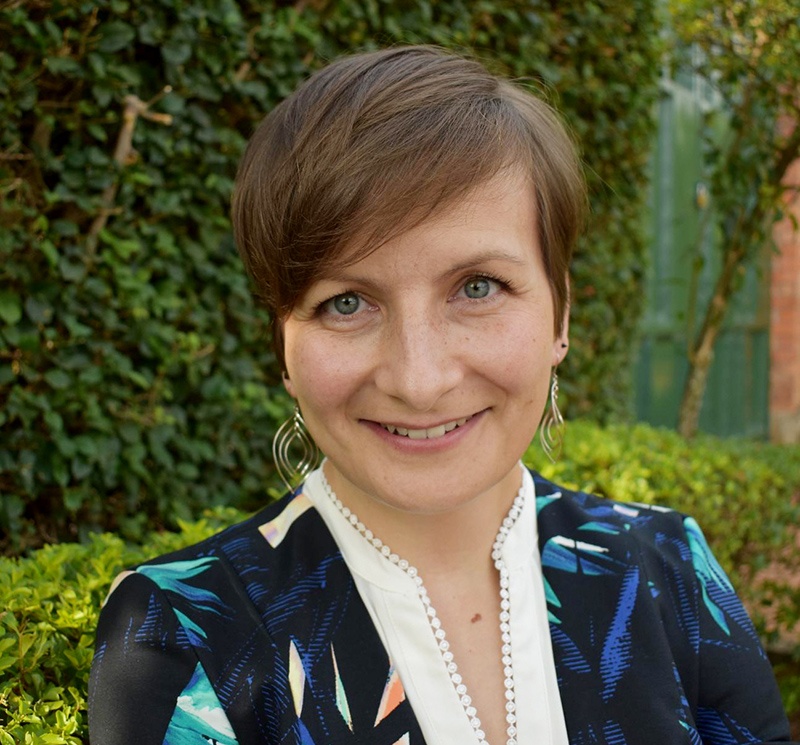INTERNATIONAL INVESTMENT
AND PORTAL
Belgian-Flemish organisation VVOB has made significant contributions to promoting sustainable development through education. Country programmes manager at VVOB in Vietnam Karolina Rutkowska shared with Thanh Van the organisation’s vision and action plan to help Vietnam achieve quality education for all.
VVOB has been supporting education in Vietnam since 1992. How do you help Vietnam put the UN Sustainable Development Goal (SDG) 4 into practice?
 Country programmes manager at VVOB in Vietnam Karolina Rutkowska
Country programmes manager at VVOB in Vietnam Karolina Rutkowska
If the right to education is to be realised and the promise of SDG4 is to be held, then it is necessary to reinforce the capacity of governments to implement key laws and education policies.
VVOB focuses on offering technical assistance that reinforces the capacity of the government and local education authorities to bridge implementation gaps in educational policy. VVOB partners with the Ministry of Education and Training (MoET), through various projects, provides practical and technical education expertise, as well as process support while making sure that relevant MoET departments increasingly take the lead as the projects progress to guarantee sustainability and institutionalisation.
In partnership with the MoET, VVOB’s projects strengthen the capacities of departments and bureaus of Education and Training at the provincial level and universities at the national level.
This way, the pedagogical and didactic competences of both new and experienced teachers are strengthened, and the professional development of school leaders is enhanced to create a supportive environment for teachers to provide quality work, ultimately leading to a big impact on the learning outcomes of students.
What are the main challenges for early childhood education (ECE) in Vietnam?
 For a sustainable future through education
For a sustainable future through education
A major concern in the ECE in Vietnam is the lack of well-being and involvement of young children, hampering their full development. Due to a policy and donor focus on accessibility for primary and secondary school children, insufficient attention has been given to ECE in vulnerable, disadvantaged, and ethnically diverse areas.
Children from ethnic minority groups start school with lower average scores on the child-developmental scales and most have not yet acquired the language of instruction (Vietnamese) at the start of their school career. This creates a learning gap between non-Kinh and Kinh children which the current teaching practices are not apt to bridge by helping children from ethnic minority groups to catch up.
Although many ECE teachers have degrees, few can demonstrate the much-needed practical skills and ECE-specific pedagogies. This deficit is reinforced by school leaders who are not equipped to organise effective professional development trajectories for teachers in those areas. Strengthening the competences of teachers and school leaders is key.
Equity in education has a lot to do with the extent to which a child has a chance to experience successes in the classroom context. To enhance quality teaching, teachers must be able to observe the levels of well-being and involvement of each child and reflect on the barriers to learning and participation, leading to taking actions to improve learning for all children.
The MoET is pursuing a learner-centred approach to improve education quality. What actions would you recommend to speed up the process?
With the implementation of the 2018 general education programme, primary education in Vietnam is entering a new era. A new, competency-based curriculum will guide the country to move from a knowledge-focused education system to one that truly values the holistic development of its learners. This requires a paradigm shift, transitioning from a teacher-centred reality to classroom practices in which children can be active and proactive, taking ownership over their learning process. Learning through play helps teachers to lead this fundamental change and to put it into practice.
Play is fundamental to how we learn, so play and learning should not be separated, so students can constantly learn about and connect with their environments.
Children entering primary schools in 2021 will enter the workforce in around 2036. It is not possible to predict exactly what the world will look like, but children and adults will continue to need basic skills in reading and math as well as a greater ability to learn how to adapt, to collaborate, and to communicate. They will have to possess innovation, problem-solving and critical thinking skills, and be resilient in the face of a fast-moving world. With learning through play, teachers can stimulate their students to develop these essential skills to thrive in the 21st century, creating a generation of lifelong learners.
By Thanh Van








